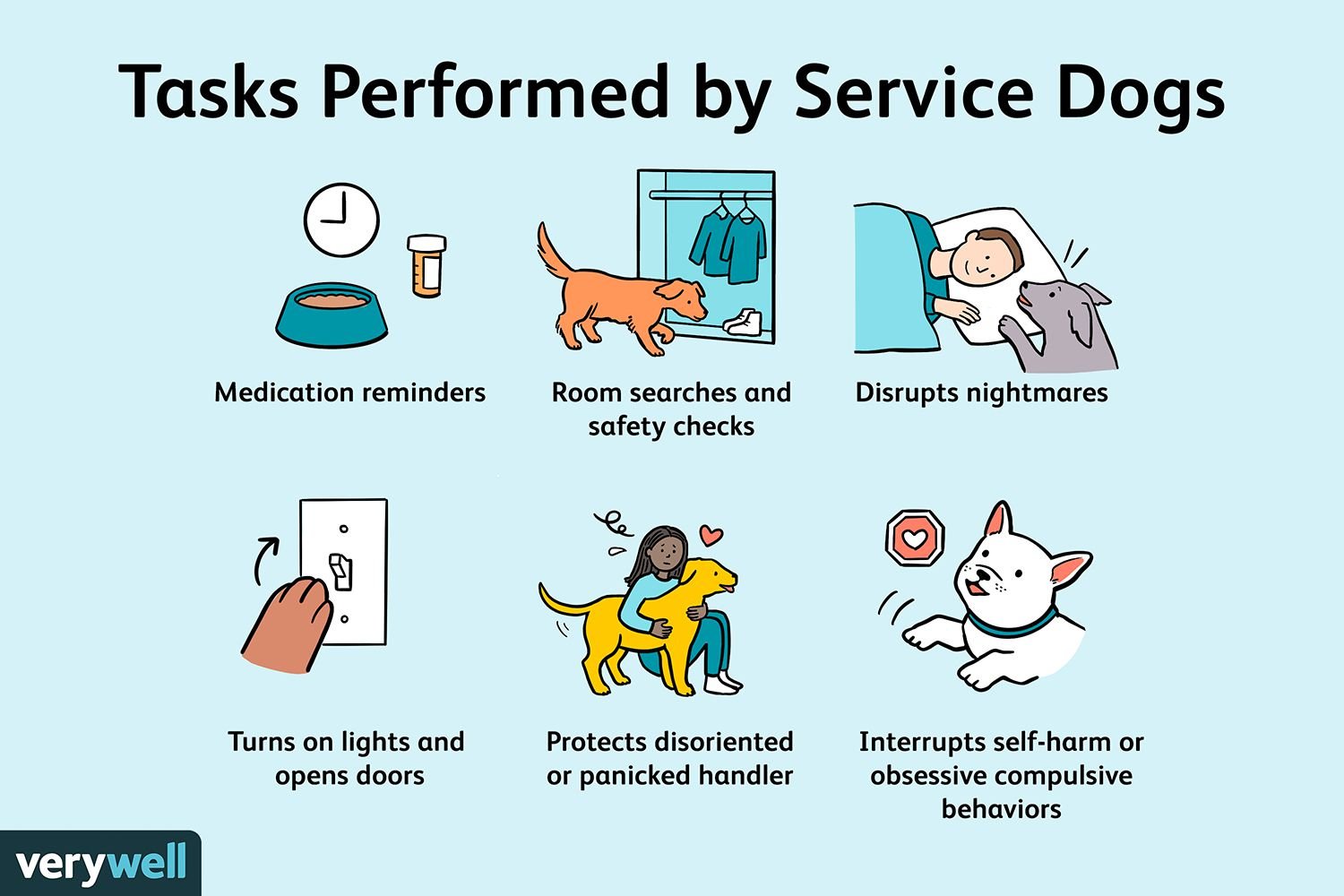If you’ve ever had an anxious dog, you know just how challenging it can be to help them calm down and feel more secure. That’s why you might be wondering if there are any specialized therapy programs or classes available specifically designed to address the needs of anxious dogs. This article will explore the various options out there, from behavior modification programs to relaxation techniques, to help you find the best resources to support and soothe your furry friend. Yes, there are numerous specialized therapy programs and classes available for anxious dogs. These programs aim to help dogs overcome their anxiety and develop more positive and confident behaviors. From professional canine behaviorists to virtual reality exposure therapy, there are various options to choose from depending on the specific needs of your dog. In this comprehensive article, we will explore the different therapy programs, classes, and modalities that can support your anxious dog’s well-being and provide them with the tools they need to thrive.
Therapy Programs for Anxious Dogs
Professional Canine Behaviorists
The first option to consider is consulting with a professional canine behaviorist. These experts have extensive knowledge and experience in understanding and modifying dog behavior. They can accurately assess your dog’s anxiety and develop a tailored behavior modification plan to address the underlying causes. By working closely with a behaviorist, you can gain valuable insights into your dog’s triggers and learn effective techniques to help them overcome their anxiety.
Medication-based Therapy
For dogs with severe anxiety, medication-based therapy may be recommended. Veterinarians can prescribe medications to help alleviate anxiety symptoms and promote a calmer state of mind. These medications can be used alongside behavior modification techniques to provide a more holistic approach to managing anxiety. It’s important to consult with a veterinarian to determine the most suitable medication for your dog’s needs and to closely monitor their progress.
Natural Remedies and Herbal Therapy
If you prefer to explore more natural approaches, there are various herbal remedies and supplements available that are known to have calming effects on anxious dogs. For example, chamomile, lavender, and valerian root can help promote relaxation. However, it’s crucial to consult with a veterinarian before using any natural remedies to ensure they are safe and appropriate for your dog.
Cognitive Behavioral Therapy (CBT) for Dogs
Similar to the CBT techniques used in human therapy, cognitive behavioral therapy for dogs focuses on changing negative thought patterns and reinforcing positive behaviors. Through a series of structured sessions, dogs are exposed to anxiety-inducing situations in a controlled and gradual manner. This allows them to gradually build resilience and develop coping mechanisms. CBT can be highly effective in helping anxious dogs overcome their fears and regain a sense of confidence and calm.
Specialized Training Classes for Anxious Dogs
Basic Obedience Classes
Basic obedience classes are an excellent starting point for anxious dogs. These classes teach essential commands like sit, stay, and come, which help establish a strong foundation of communication between you and your dog. By attending these classes, your dog can also learn to focus and follow instructions, which can be beneficial in managing anxiety-inducing situations.
Fear and Anxiety Management Classes
Fear and anxiety management classes specifically target dogs with anxiety issues. These classes provide a safe and supportive environment where dogs can learn techniques to manage and cope with their anxiety. Trained instructors guide both the dogs and their owners through various exercises and activities aimed at building confidence and reducing anxiety levels.
Desensitization and Counterconditioning Classes
Desensitization and counterconditioning classes focus on gradually exposing dogs to the things that trigger their anxiety in a controlled and positive way. By repeatedly exposing your dog to these triggers while ensuring they have positive experiences, you can help break the association between the trigger and their anxiety response. These classes are typically led by experienced trainers who understand the importance of gradual exposure and positive reinforcement.
Trick Training Classes
Trick training classes offer a fun and engaging way to redirect your dog’s focus and build their confidence. By teaching your dog new tricks, you can shift their attention away from their anxiety-inducing triggers. Trick training also provides mental stimulation and allows your dog to experience a sense of accomplishment, which can boost their overall well-being and reduce anxiety levels.
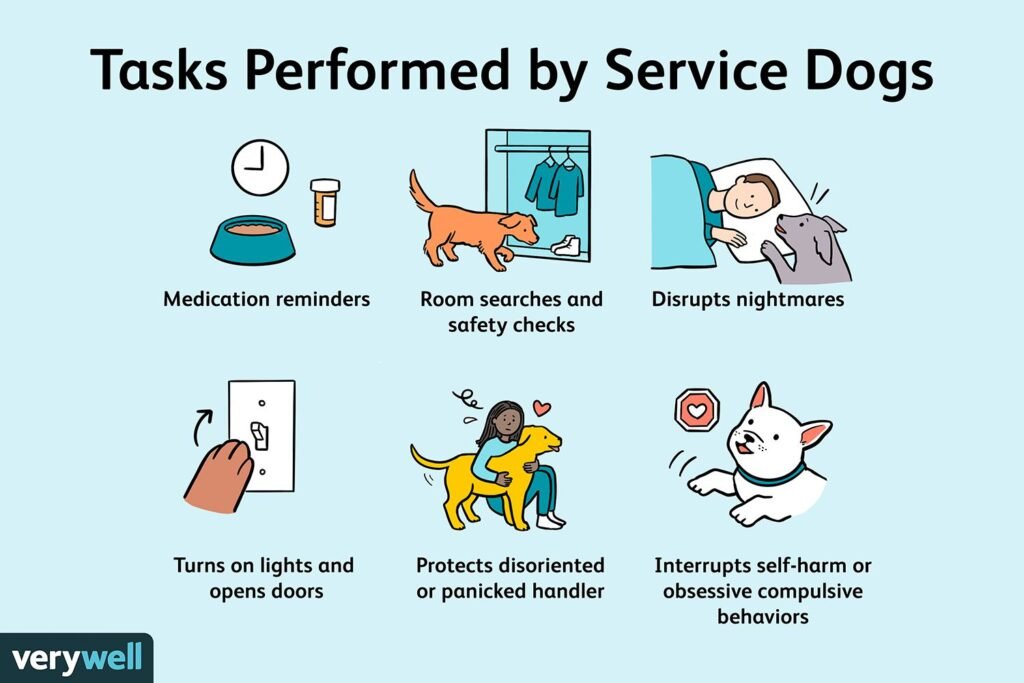
This image is property of www.verywellhealth.com.
Individualized Behavior Modification
Working with Certified Dog Trainers
For more personalized attention, working with a certified dog trainer can be highly beneficial. These trainers have extensive knowledge and experience in dealing with anxious dogs and can tailor their approach to suit your dog’s specific needs. They will work closely with you to develop a behavior modification plan and provide guidance and support throughout the process.
Behavior Assessments and Tailored Plans
A behavior assessment is an important first step in developing a tailored behavior modification plan for your anxious dog. During the assessment, a professional behaviorist or trainer will evaluate your dog’s behavior, triggers, and overall temperament. Based on the assessment, they will create a personalized plan that addresses your dog’s specific anxieties and provides strategies to help them overcome their fears.
One-on-One Sessions
One-on-one sessions with a behaviorist or trainer offer dedicated time and attention solely focused on your dog’s needs. These sessions can be particularly beneficial for anxious dogs as they provide a safe and controlled environment for your dog to learn and practice new behaviors. With individualized attention, trainers can quickly identify and address any specific challenges your dog may face.
Virtual Training Options
In today’s digital age, virtual training options have become increasingly popular. Virtual training programs allow you to work with experienced trainers remotely, eliminating the need for in-person sessions. Through video consultations and online resources, you can receive personalized guidance and support for your anxious dog from the comfort of your own home.
Additional Modalities
Physical Exercise and Enrichment
Physical exercise is essential for the overall well-being of dogs, including anxious ones. Regular exercise helps release pent-up energy and promotes a sense of relaxation. Activities such as structured walks, games of fetch, and interactive toys can provide mental stimulation and help redirect your dog’s focus away from their anxiety.
Aromatherapy and Calming Products
Aromatherapy and calming products can create a soothing environment for anxious dogs. Certain scents, such as lavender or chamomile, are known to have calming effects on dogs. There are also products available, such as pheromone diffusers and anxiety wraps, that can help create a sense of security and reduce anxiety.
Music and Sound Therapy
Music and sound therapy can have a calming effect on anxious dogs. Playing soft, classical music or specially designed calming music for dogs can help create a relaxing atmosphere. Sound therapy can also involve using specific sounds or white noise to mask anxiety-inducing noises such as thunderstorms or fireworks.
Massage and TTouch Therapy
Massage and TTouch therapy techniques can promote relaxation and reduce anxiety in dogs. Gentle touch and massage can help release tension, increase blood flow, and create a sense of well-being. TTouch therapy involves specific touches and movements on the dog’s body to help alleviate anxiety and promote a sense of calm.
Acupuncture and Acupressure
Acupuncture and acupressure are alternative therapies that can help alleviate anxiety in dogs. By targeting specific points on the body, these techniques stimulate energy flows and promote relaxation. Veterinary acupuncturists or certified practitioners can provide these therapies and tailor the treatment to suit your dog’s individual needs.
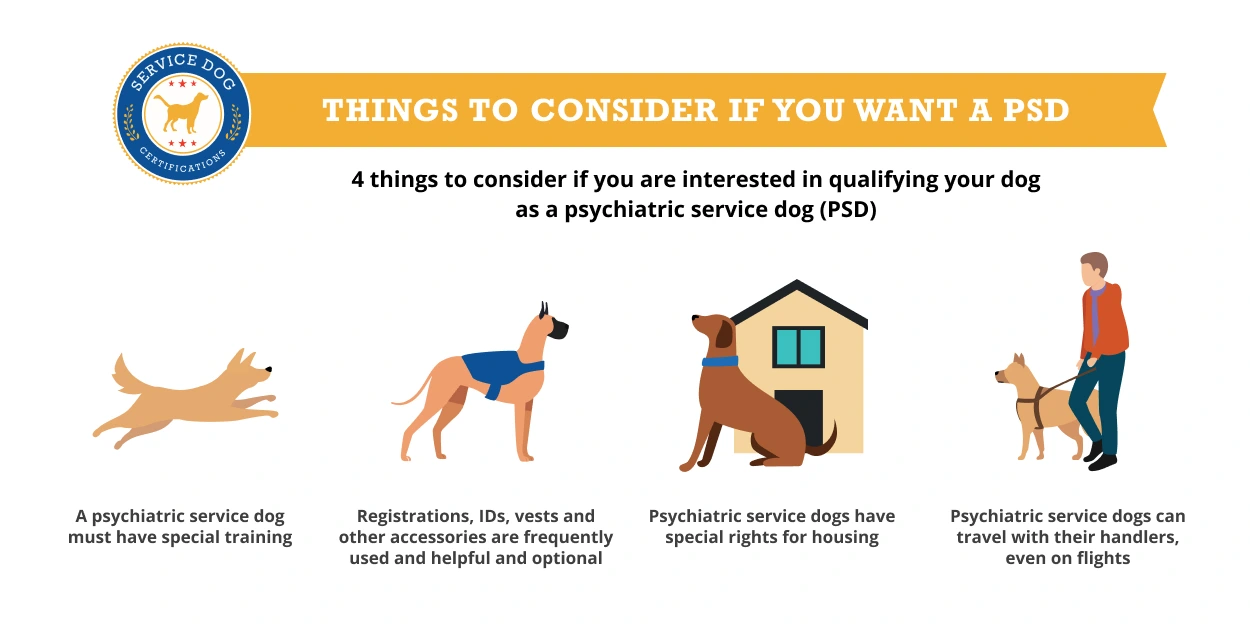
This image is property of www.servicedogcertifications.org.
Support Groups and Socialization
Anxiety Support Groups for Dogs and Owners
Joining an anxiety support group for dogs and their owners can provide a valuable sense of community and support. In these groups, you can connect with other dog owners who are facing similar challenges and share experiences and strategies for managing anxiety. Support groups typically include regular meetings or online forums where you can ask questions and receive guidance from experienced moderators.
Doggy Daycare and Dog Parks
Socialization is essential for dogs, and it can be particularly beneficial for anxious dogs. Doggy daycare centers and dog parks offer opportunities for dogs to interact in a controlled and supervised environment. These environments can help anxious dogs gradually build confidence and develop positive associations with other dogs and people.
Canine Sports and Activities
Engaging your anxious dog in canine sports and activities can provide mental and physical stimulation while promoting socialization. Activities such as agility, obedience trials, or scent work can help redirect your dog’s focus away from their anxiety and channel their energy into more positive outlets. Participating in these activities as a team can also strengthen the bond between you and your dog, creating a sense of security and trust.
Technology-Assisted Solutions
Virtual Reality (VR) Exposure Therapy
Virtual reality exposure therapy is an innovative solution for helping anxious dogs overcome their fears. This technology creates a virtual environment where dogs can be exposed to anxiety-inducing situations in a controlled and safe manner. By gradually exposing the dog to these simulations and providing positive reinforcement, virtual reality exposure therapy can help desensitize dogs to their triggers.
Anxiety-Reducing Apps and Games
There are several apps and games available that are designed to help reduce anxiety in dogs. These apps often include calming sounds, interactive games, or guided relaxation exercises that can be used to distract and soothe your anxious dog. Some apps even allow for personalized customization to suit your dog’s specific needs.
Smart Collars and Wearable Devices
Smart collars and wearable devices can provide valuable insights into your dog’s anxiety levels. These devices use technology to monitor your dog’s heart rate, activity levels, and other physiological indicators. By tracking these data points, you can gain a better understanding of your dog’s anxiety triggers and levels, helping you make informed decisions about their care and treatment.
Interactive Toys and Treat Dispensers
Interactive toys and treat dispensers can be effective in redirecting your dog’s focus away from their anxiety. These toys often require mental stimulation and problem-solving, which can help distract your dog from their anxious thoughts and provide a sense of satisfaction. Additionally, treat dispensers can be used as a positive reinforcement tool during training and behavior modification sessions.
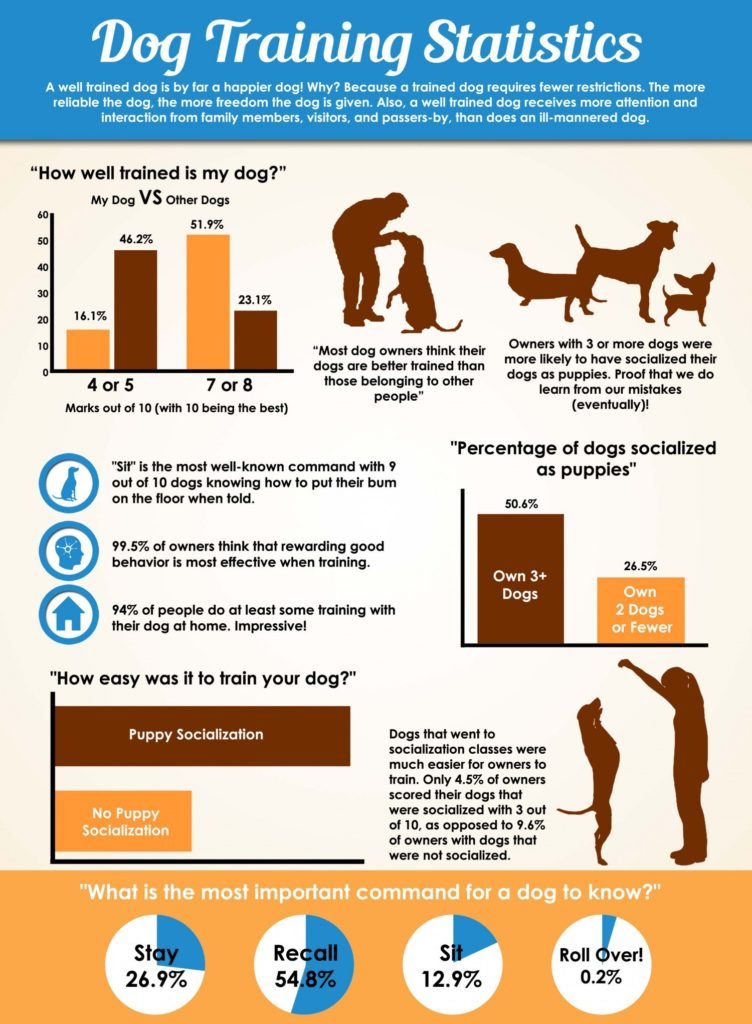
This image is property of suburban-k9.com.
Home-Based Therapy Options
Creating a Calm and Safe Environment
Creating a calm and safe environment at home is crucial for supporting an anxious dog. Providing a designated space where your dog can retreat to when feeling overwhelmed can help them feel secure. Minimizing noise and visual stimuli, providing comfortable bedding, and ensuring a consistent routine can also contribute to a more relaxed and anxiety-free environment.
Behavior Modification Tools and Techniques
Implementing behavior modification tools and techniques at home can reinforce the training and techniques learned in therapy programs and classes. Techniques such as desensitization and counterconditioning can be practiced in familiar settings, gradually exposing your dog to their triggers in a controlled manner. Consistency and patience are key when implementing behavior modification tools at home.
Implementing Relaxation Techniques
Relaxation techniques, such as deep breathing exercises or massage, can be implemented at home to help calm your anxious dog. By practicing these techniques regularly, you can help your dog develop a relaxation response and manage their anxiety more effectively. It’s important to start with short sessions and gradually increase the duration as your dog becomes more comfortable.
Integrative Approaches
Combining Different Therapies and Techniques
Integrative approaches involve combining different therapies and techniques to create a holistic treatment plan for your anxious dog. By combining medication-based therapy, behavior modification techniques, and complementary modalities, such as herbal therapy or acupuncture, you can provide your dog with a comprehensive and customized approach to managing their anxiety.
Holistic Veterinary Medicine and Care
Holistic veterinary medicine focuses on treating the whole animal, considering the physical, mental, and emotional aspects of their well-being. Holistic veterinarians may incorporate a range of approaches, including nutrition, acupuncture, herbal medicine, and behavioral assessments into their treatment plans. Consulting with a holistic veterinarian can provide additional insights and options for managing your anxious dog’s overall wellness.
Collaboration Between Veterinarians and Behaviorists
Collaboration between veterinarians and behaviorists is crucial in developing an effective treatment plan for an anxious dog. Veterinarians can assess your dog’s overall health and prescribe appropriate medications if necessary. Behaviorists can then work closely with veterinarians to develop behavior modification plans and implement techniques to address anxiety triggers. This collaboration ensures a comprehensive and well-rounded approach to managing your dog’s anxiety.
%20(3).jpg/:/cr=t:0%25,l:2.98%25,w:94.04%25,h:100%25/rs=w:1240,h:932.3308270676691,cg:true)
This image is property of img1.wsimg.com.
Online Resources and Courses
Webinars and Online Classes
Webinars and online classes offer a convenient way to access educational resources and learn from professionals in the field. Many renowned behaviorists and trainers offer webinars and online courses specifically designed for anxious dogs. These resources can provide valuable information, practical tips, and step-by-step guidance on managing anxiety in dogs.
Ebooks and Educational Materials
Ebooks and other educational materials can offer in-depth knowledge and insights into managing anxiety in dogs. These resources often cover various topics, including understanding anxiety triggers, behavior modification techniques, and practical strategies for creating a calm environment. Ebooks can be a valuable tool for dog owners looking to expand their knowledge and implement effective strategies at home.
Virtual Consultations
Virtual consultations provide an opportunity to seek professional advice and guidance from the comfort of your own home. Many behaviorists and trainers offer virtual consultations where you can discuss your dog’s specific needs, behavior concerns, and receive personalized recommendations. Virtual consultations can be a convenient and accessible option for dog owners who may not have local access to specialized professionals.
Cost and Availability
Financial Considerations
The cost of therapy programs for anxious dogs can vary depending on various factors, including the type of therapy, the duration of sessions, and the qualifications and experience of the professionals involved. It’s important to consider the financial implications of therapy programs and classes and ensure they align with your budget. Some programs may offer payment plans or discounts, so it’s worth exploring different options to find a program that suits both your dog’s needs and your financial circumstances.
Finding Local Resources
Finding local resources, such as training centers, behaviorists, or veterinarians specializing in anxious dogs, can be beneficial for hands-on support. Local resources allow for in-person interactions, personalized assessments, and tailored programs. Utilizing online directories, asking for recommendations from local pet owners, or consulting with your veterinarian can help you find reputable and qualified professionals in your area.
Accessibility of Different Programs
When choosing a therapy program or class for your anxious dog, it’s important to consider the accessibility and availability of the program. Factors to consider include the location of the program, the schedule of classes, and whether virtual options are available. By choosing a program that is easily accessible and fits into your daily routine, you can ensure regular attendance and consistency in your dog’s treatment plan.
In conclusion, there are numerous specialized therapy programs, classes, and modalities available for anxious dogs. Through the expertise of professional behaviorists, targeted training classes, individualized behavior modification, and the utilization of additional modalities, dog owners can find effective ways to support their anxious dogs. Whether in-person or virtual, these programs and resources aim to provide both dogs and their owners with the necessary tools and guidance to manage anxiety and promote a happier and healthier canine-human bond. By combining different therapies, integrating home-based techniques, and utilizing online resources, anxious dogs have a greater chance of overcoming their fears and leading fulfilling lives. With patience, dedication, and proper support, you can be proactive in helping your anxious dog navigate their anxiety and provide them with the opportunity to thrive with confidence.
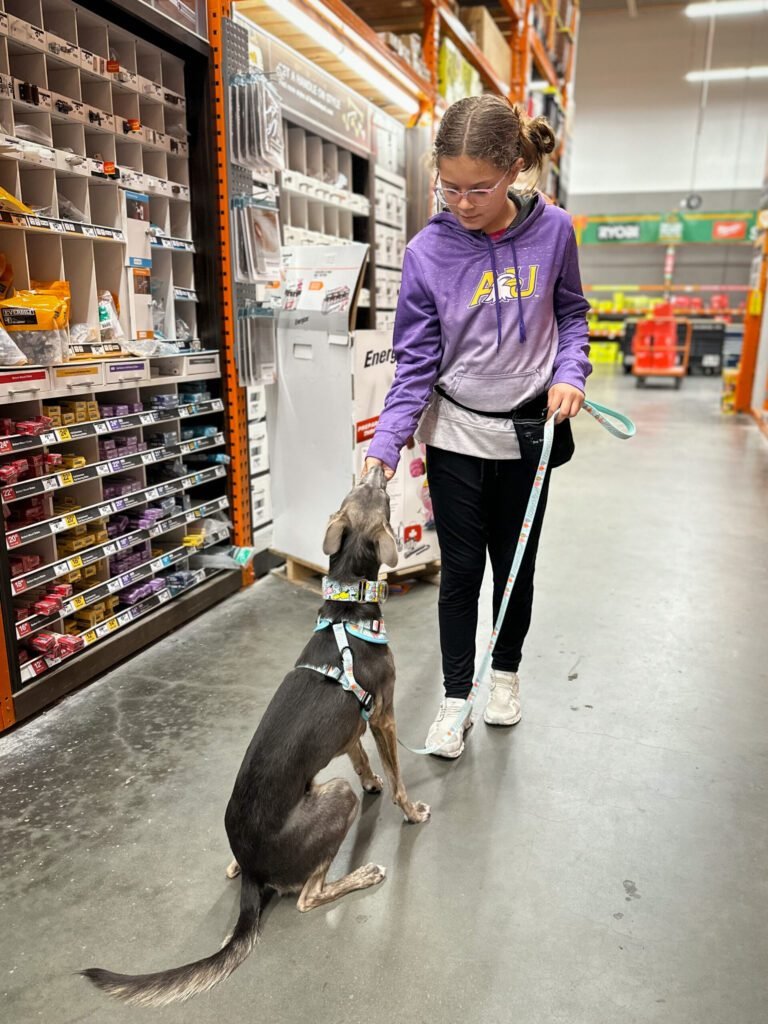
This image is property of www.therapydogs.com.

